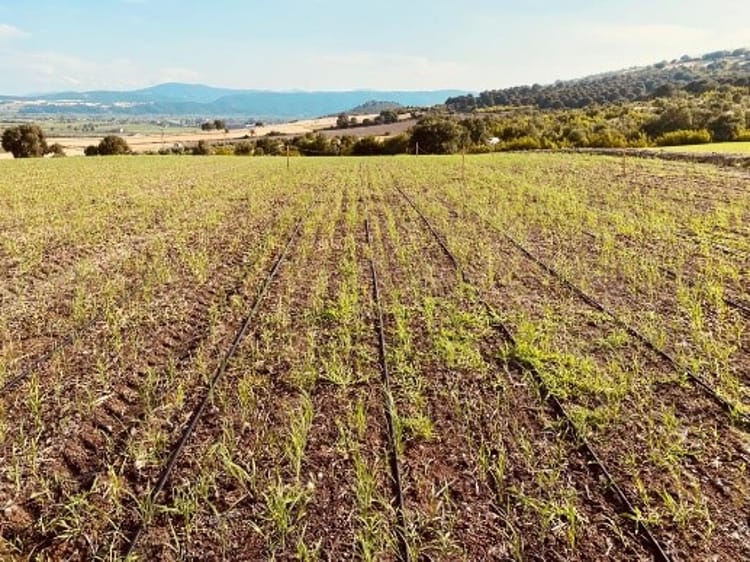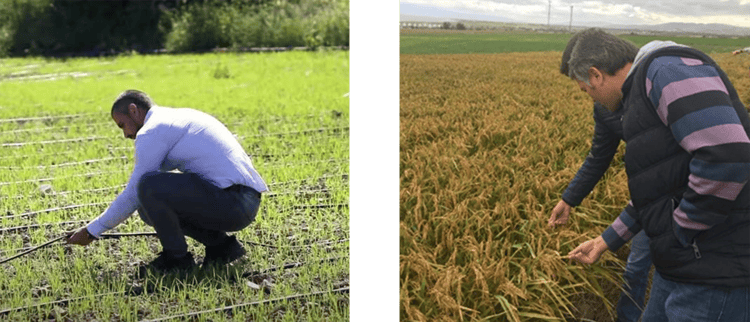The Revolutionary Transformation of Paddy through Drip Irrigation
Türkiye has a diverse agricultural landscape, and rice cultivation is one of the key components. The country’s rice production is primarily concentrated in the northern regions, where favorable climatic conditions and suitable soil types support rice cultivation.
Türkiye’s rice yield is influenced by factors like weather patterns, irrigation practices, and technological advancements in farming techniques. By focusing on sustainable and efficient rice cultivation, Turkey aims to meet domestic demand and potentially contribute to the global rice production market. On the other hand, the traditional irrigation method of flooding (paddy) has led to excessive water usage. In light of this, Netafim took the initiative in 2015 to introduce drip irrigation for rice crops. This groundbreaking study, conducted in collaboration with universities, research institutes, and the Ministry of Agriculture in Turkey, aimed to demonstrate the advantages of drip irrigation in rice cultivation.

Advantages of drip ırrigation for rice growers
1. Reduced water usage: Drip irrigation allows for a significant reduction in water consumption. By delivering water directly to the roots of the plants, this method ensures efficient and effective utilization of water resources.
2. Cost Savings: Drip irrigation offers economic benefits to rice growers. Land preparation expenses are reduced as there is no need for laser leveling. Additionally, energy and labor costs are minimized, contributing to overall cost savings for farmers.
3. Increased Flexibility: Drip irrigation enables rice cultivation on sloping lands, which was previously challenging with traditional methods. Moreover, farmers can also grow rice as a second crop, maximizing land utilization and productivity.

Netafim’s commitment to improving rice cultivation through drip irrigation is ongoing. The next step in our studies focuses on weed management in dripirrigated rice fields. In the past, official research institutes have established demo plots for this purpose. Netafim Turkey, in collaboration with the Global Agronomy Unit, has also established a demo plot to conduct herbigation studies, further enhancing the effectiveness of weed control in rice crops. Drip irrigation represents a revolutionary transformation in rice cultivation. Through reduced water usage, cost savings, and increased flexibility, this method offers significant advantages to rice growers. Netafim’s pioneering efforts in dripirrigated rice have paved the way for sustainable and efficient farming practices, benefiting both farmers and water resources alike.


